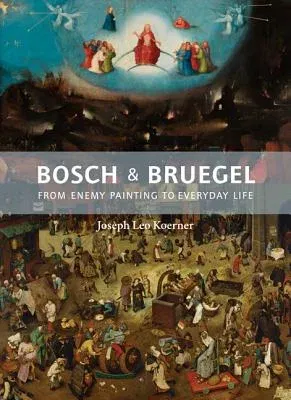Joseph Leo Koerner
(Author)Bosch and Bruegel: From Enemy Painting to Everyday Life - Bollingen Series XXXV: 57 (Bollingen Series XXXV: 57)Hardcover - Bollingen Series XXXV: 57, 6 December 2016

Qty
1
Turbo
Ships in 2 - 3 days
Only 2 left
Free Delivery
Cash on Delivery
15 Days
Free Returns
Secure Checkout

Part of Series
A. W. Mellon Lectures in the Fine Arts
Part of Series
Bollingen
Part of Series
Bollingen Series (General)
Part of Series
Princeton University Press (Bollingen Series)
Part of Series
Princeton University Press
Part of Series
National Gallery of Art, Washington, DC
Part of Series
A. W. Mellon Lectures in the Fine Arts, 60
Part of Series
National Gallery of Art, Washington, DC, 19
Part of Series
Bollingen Series (General), 209
Print Length
432 pages
Language
English
Publisher
Princeton University Press
Date Published
6 Dec 2016
ISBN-10
0691172285
ISBN-13
9780691172286
Description
Product Details
Author:
Book Edition:
Bollingen Series XXXV: 57
Book Format:
Hardcover
Country of Origin:
CN
Date Published:
6 December 2016
Dimensions:
28.7 x
21.08 x
3.3 cm
ISBN-10:
0691172285
ISBN-13:
9780691172286
Language:
English
Location:
Princeton
Pages:
432
Publisher:
Series:
Weight:
1905.09 gm